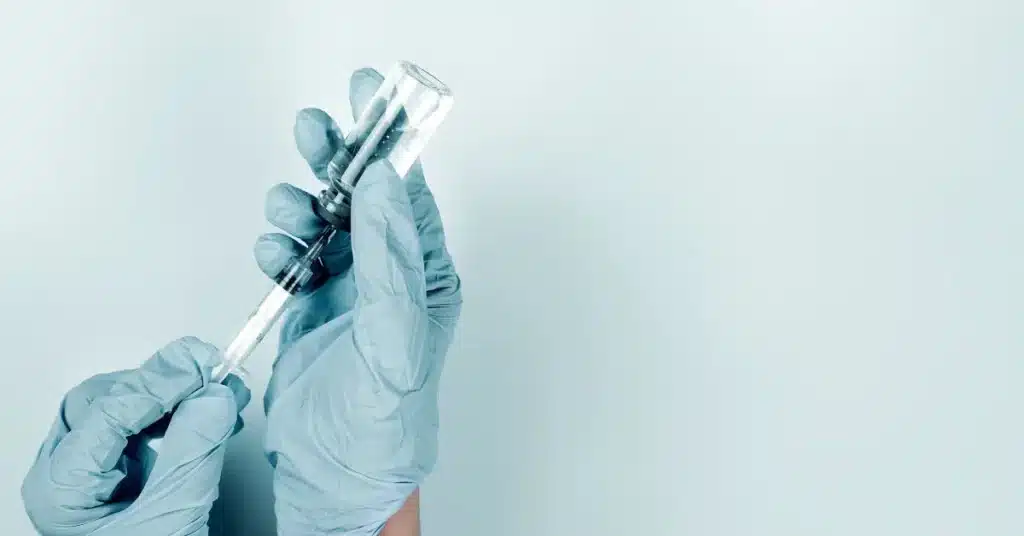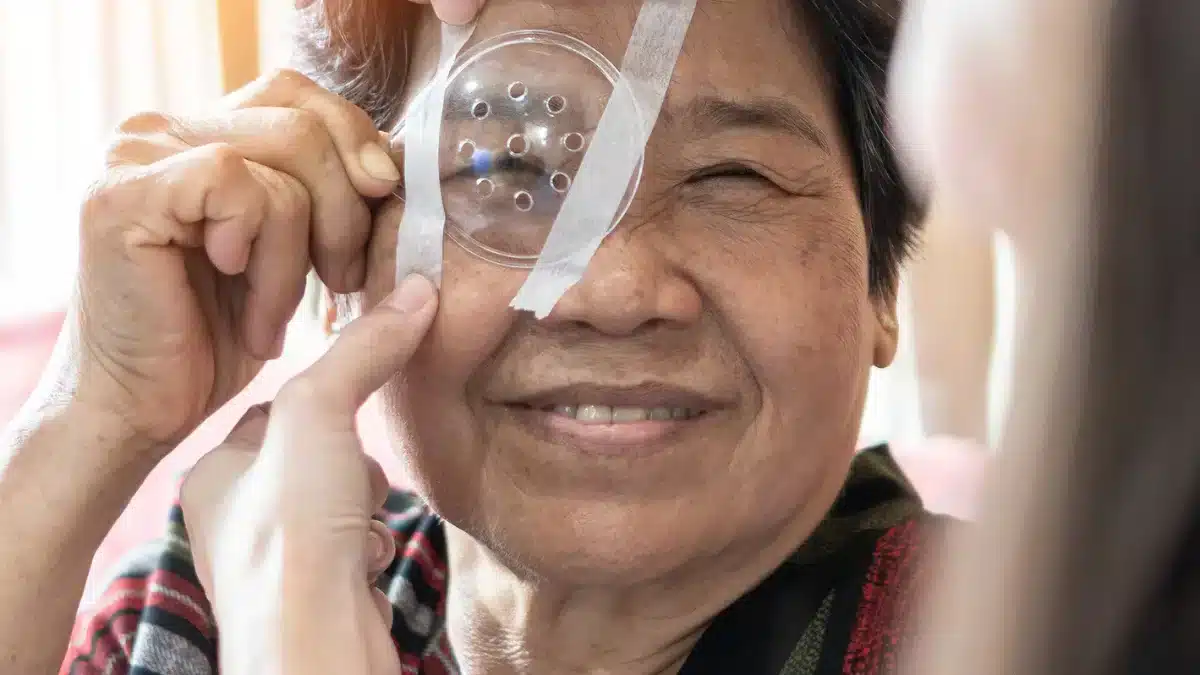Diabetic Retinopathy results from Diabetes-induced damage to the blood vessels in the retina.
It can have various symptoms, such as blurred vision, difficulty seeing colors, and eye floaters.
Without proper treatment for Diabetic Retinopathy, it might result in eyesight loss.
Diabetic Retinopathy can be treated with the help of laser therapy, medicines, and surgery.
This article will focus on Diabetic Retinopathy treatments and when to seek medical treatment.
Treatment for Diabetic Retinopathy
Conventional Diabetic Retinopathy treatments have been essential in managing this condition.
In certain cases, an extensively dilated eye examination may be required every 2-4 months.
If Diabetic Retinopathy is left untreated, it may lead to Glaucoma and permanent damage to the retina.
Early diagnosis and proper treatment are essential to prevent its impact on overall visual health.
Let’s discuss treatments available for Diabetic Retinopathy in detail:
Laser treatment
A doctor uses focused lasers to reduce blood vessels in the eye and plug leaks cased by abnormal blood vessels.
The bright light can sting or make you uncomfortable, and it’s usual to have blurry vision for the rest of the day.
Small dots may occur in the visual field for a few weeks following the treatment.
Laser treatment carries several risks, including losing peripheral vision, color vision, and night vision.
An individual can discuss the relative benefits and risks of this treatment with their doctor.
Injections
 Source: Golib
Source: GolibEye injections are an innovative method to treat Diabetic Retinopathy.
This method has gained popularity in recent years and has proven to be quite efficient.
These injections often contain anti-VEGF medications for treating Diabetic Retinopathy.
They are designed to target abnormal blood vessels in the retina, preventing their growth and reducing the risk of vision loss.
In some cases, steroids are used to relieve eye inflammation due to Diabetic Retinopathy.
Eye surgery
Eye surgery for Diabetic Retinopathy targets damaged blood vessels and other complications.
The goal is to improve vision by replacing hazy vitreous or blood while assisting the doctor in locating and repairing any sources of retinal bleeding.
After removing the cloudy part, the surgeon puts in a clear liquid or gas that the body absorbs over time, making new vitreous.
Post-surgery, wearing an eye patch briefly, and using eye drops helps with swelling and infections.
It is essential to note that surgery is not a cure, but it helps to slow down Diabetic Retinopathy symptoms.
When to seek medical help for Diabetic Retinopathy
Seek medical help for Diabetic Retinopathy if you notice any changes in your vision.
These changes may include blurred or distorted sight, eye floaters, or difficulty seeing at night.
Immediate attention is essential if you experience sudden vision loss or an increased severity of symptoms.
Regular eye check-ups are also crucial, especially who have Diabetes, to detect and manage Diabetic Retinopathy early.
Managing Diabetes through proper blood sugar control, a healthy lifestyle, and regular medical check-ups is crucial to slow the progression of Diabetic Retinopathy.
Summing up
Diabetic Retinopathy is a complication of Diabetes that can lead to vision problems and even blindness.
It occurs when high blood sugar damages the blood vessels in the retina, leading to vision problems.
In some cases it can lead to blurred vision and dark spots, and, if left untreated, may result in severe vision loss or blindness.
Some of the most effective Diabetic Retinopathy treatments are laser therapy, eye injections, and surgery.
Regular eye check-ups and managing Diabetes are essential for preventing and managing Diabetic Retinopathy.
Frequently Asked Questions
Is laser treatment effective for Diabetic Retinopathy?
Yes, laser treatment is often effective for Diabetic Retinopathy. It helps to manage abnormal blood vessels, reducing the risk of vision loss.
However, the effectiveness depends on the stage and severity of Diabetic Retinopathy, and individual responses may vary.
What are the side effects of injections for Diabetic Retinopathy?
Injections for Diabetic Retinopathy, particularly anti-VEGF drugs, may have side effects.
These can include temporary vision changes, discomfort, and increased eye pressure.
More severe complications like infection or retinal detachment may occur in rare cases.
Regular monitoring and communication with your eye care professional are essential.
Can Diabetic Retinopathy be cured?
Diabetic Retinopathy is not curable, but timely and effective management.
Laser therapy, injections, and surgery can significantly slow its progression and prevent vision loss.
Regular checkups and adherence to treatment plans are crucial for optimal outcomes.
How often should Diabetic Retinopathy be monitored?
Regular monitoring is crucial for Diabetic Retinopathy.
Individuals with Diabetes should undergo comprehensive eye exams at least once a year.
This frequency may be adjusted based on recommendations from their eye care professional.
The goal is to detect changes early and facilitate timely intervention for optimal vision preservation.
Are there risks associated with Diabetic Retinopathy treatments?
Yes, Diabetic Retinopathy treatments, such as anti-VEGF injections or laser therapy, may carry some risks.
Common side effects include temporary vision changes and eye discomfort.
While severe complications are rare, individuals should discuss potential risks with their eye care provider before treatment.
When referencing outside resources, GoodrxMedicine always provides full citations. To learn more about the measures we use to maintain the quality of our content, please review our Content Information Policy.











